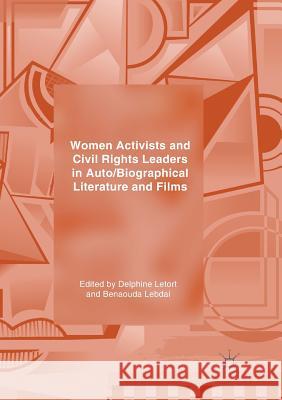Women Activists and Civil Rights Leaders in Auto/Biographical Literature and Films » książka
topmenu
Women Activists and Civil Rights Leaders in Auto/Biographical Literature and Films
ISBN-13: 9783030083656 / Angielski / Miękka / 2018 / 231 str.
Kategorie:
Kategorie BISAC:
Wydawca:
Palgrave MacMillan
Język:
Angielski
ISBN-13:
9783030083656
Rok wydania:
2018
Wydanie:
Softcover Repri
Ilość stron:
231
Waga:
0.30 kg
Wymiary:
21.01 x 14.81 x 1.32
Oprawa:
Miękka
Wolumenów:
01
Dodatkowe informacje:
Wydanie ilustrowane











